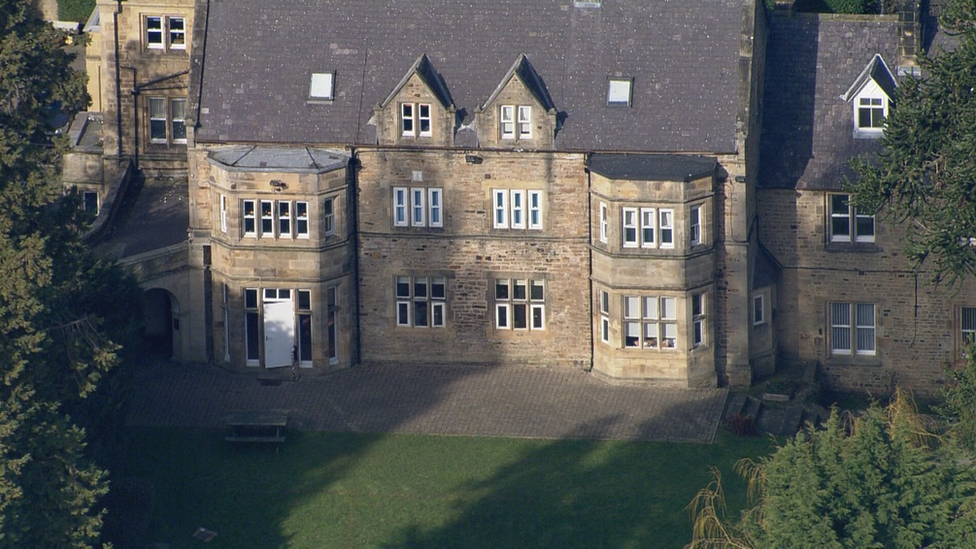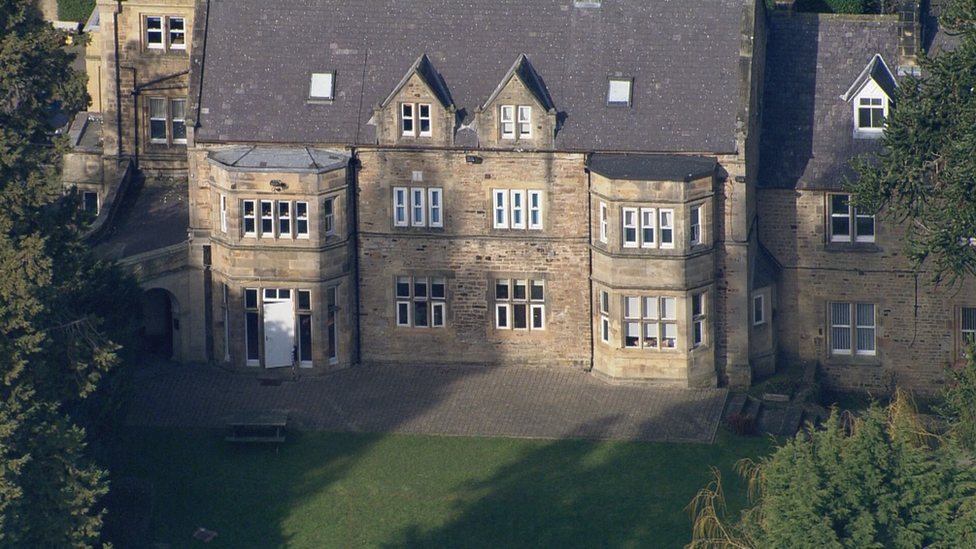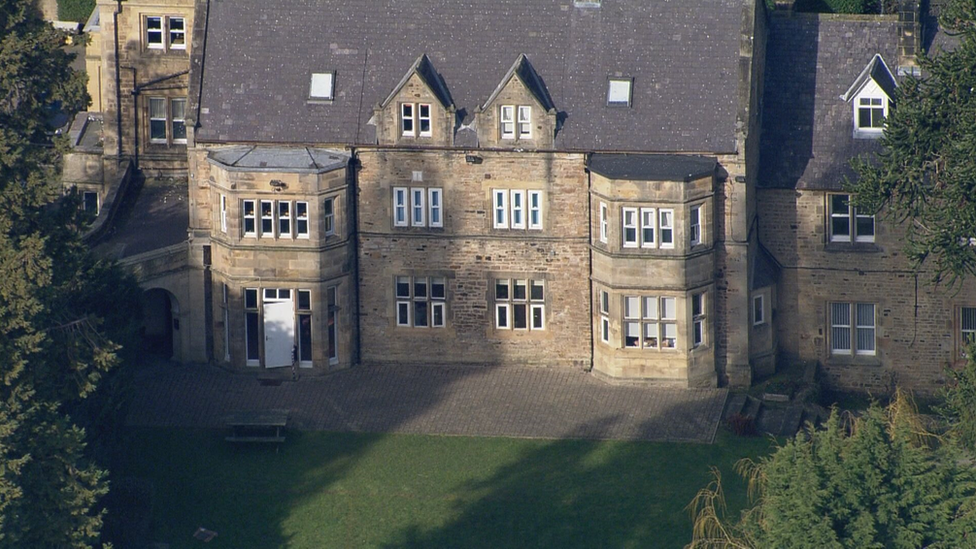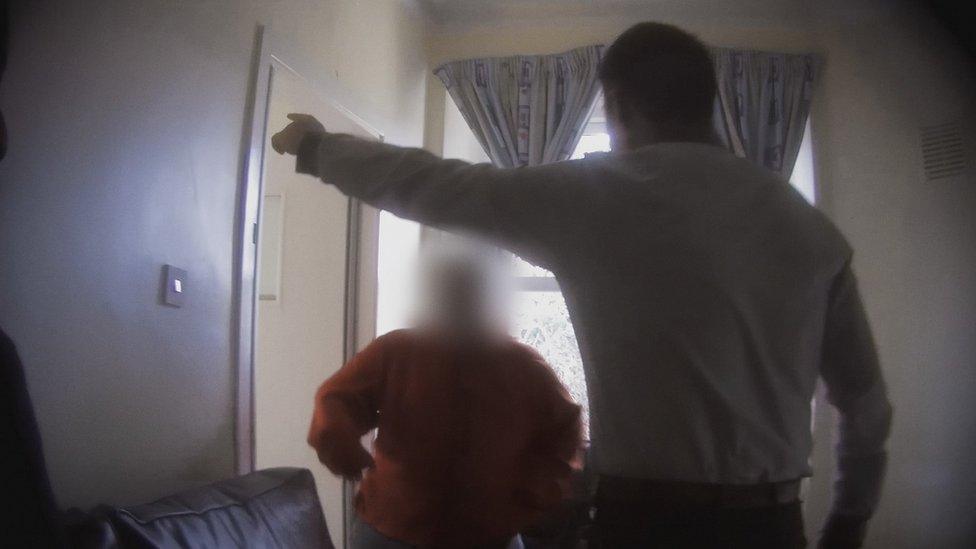Whorlton Hall abuse: 'Devious staff' misled inspectors
- Published

Whorlton Hall was a 17-bed unit for adults with learning difficulties and autism
Failings by the care watchdog and a "toxic culture" may have allowed "devious staff" to abuse vulnerable hospital residents, a review has found.
Whorlton Hall in County Durham was closed after a Panorama investigation appeared to show patients with learning difficulties being mistreated.
The Care Quality Commission (CQC) was criticised over its inspections and regulation of the Barnard Castle site.
The review, external said a small group of staff "deliberately misled" inspectors.
The CQC has already been criticised for not properly acting on concerns of whistleblowers, including a failure to publish a critical 2015 report by inspector Barry Stanley-Wilkinson.
Whorlton Hall, which treated patients with severe learning difficulties and autism, had seven CQC inspections between 2015 and 2019, when the Panorama programme was broadcast.
Clinical psychologist Professor Glynis Murphy's review heard from staff who had been on the "shop floor" and talked about the "toxic culture" among a small group of staff in Whorlton Hall.
The review went on: "This so-called 'alpha group' of staff had worked in Whorlton Hall for many years and it seemed that senior staff had recognised that they behaved inappropriately in various ways, engaging in conversations that were unsuitable between themselves, and socialising closely outside of work as well as in work.
"According to whistleblowers, two staff members, who had been considered to be the ringleaders, had been moved out of Whorlton Hall by senior managers to different services on two occasions, between 2014 and 2016, each time for a period of months.
"Those interviewed reported the service had improved in their absence, and yet they were allowed back each time, after being disciplined, apparently because there were insufficient grounds to sack them."
The review said levels of restraint used at Whorlton Hall were "sometimes very high" and that there were suggestions some residents who had complained about abuse were pressurised to withdraw them by "unscrupulous staff".
Covert CCTV
The review added: "Where there is a small group of devious staff who deliberately mislead both those engaged in inspection and regulation processes, it is very difficult to detect their actions, especially when service users are very vulnerable and have limited communication skills.
"In hindsight, unannounced visits, especially at evenings and weekends, may have helped to detect failings in the service."
The review makes several other recommendations, including more use of covert CCTV.
Ian Trenholm, chief executive of CQC, said: "We will be incorporating the recommendations into our new strategy to ensure we improve how we regulate mental health, learning disability and/or autism services to get it right for people who use these services.
"The work we are doing in our review of restraint, seclusion and segregation continues, and the final report will make practical recommendations for CQC and the wider system to improve care and outcomes for people with a learning disability and autistic people."
Danshell Group ran the 17-bed hospital unit in 2015 and was taken over by Cygnet in 2018. Cygnet said it was "shocked and deeply saddened" by the abuse allegations.

Follow BBC North East & Cumbria on Twitter, external, Facebook, external and Instagram, external. Send your story ideas to northeastandcumbria@bbc.co.uk, external.
- Published10 June 2019

- Published26 May 2019

- Published24 May 2019

- Published23 May 2019

- Published23 May 2019

- Published22 May 2019
